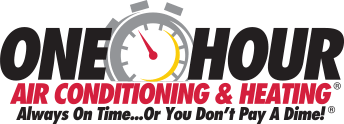
How Clogged Air Filters Affect Your HVAC
Clogged air filters can cause major HVAC issues, especially during February in Grand Prairie and Grapevine, TX, when temperatures fluctuate. A dirty filter reduces efficiency, increases energy costs, and lowers indoor air quality. It forces your system to work harder, leading to potential breakdowns and expensive repairs. Understanding how clogged air filters affect your HVAC system helps prevent these problems and keeps your home comfortable. Regular maintenance ensures better airflow, improved efficiency, and healthier indoor air year-round.
Reduced Airflow and Increased Energy Bills
Clogged air filters restrict airflow, forcing your HVAC system to work harder and consume more energy. This extra strain increases monthly utility bills, especially in February, when heating systems run frequently in Grand Prairie and Grapevine. A blocked filter limits proper air circulation, making it harder to maintain a consistent indoor temperature and leading to noticeable spikes in energy costs.
When airflow is restricted, your HVAC system runs longer cycles, increasing energy use by up to fifteen percent. The additional strain can cause overheating, motor failure, and compressor damage, resulting in frequent repairs. Over time, worn-out components reduce overall system efficiency, leading to premature breakdowns and costly replacements. The harder your system works, the shorter its lifespan becomes, making routine maintenance essential.
Higher energy consumption does not just raise costs—it also affects the environment. A system with clogged air filters produces more carbon emissions, making it less energy-efficient. Replacing filters regularly improves airflow, minimizes strain, and helps your HVAC system run smoothly throughout the year.
Strain on the HVAC System and Costly Repairs
Your HVAC system depends on a steady airflow to function efficiently. When clogged air filters block circulation, the blower motor works harder, leading to overheating. Over time, this added strain wears down essential components, including the motor, fan, and compressor. A system struggling with airflow issues is more likely to experience breakdowns, requiring costly repairs and reducing overall efficiency.
A dirty filter also impacts cooling performance. If left unaddressed, clogged air filters can cause evaporator coils to freeze, resulting in:
- Reduced system efficiency and uneven indoor temperatures
- Increased energy consumption as the unit struggles to operate
- Higher repair costs due to frozen or damaged components
- Complete system shutdown during peak heating or cooling seasons
As Texas temperatures rise toward spring, airflow issues become even more problematic. A frozen coil forces the system to shut down, leaving homeowners without cooling when they need it most. Ignoring routine filter changes can turn a simple issue into a major repair.
Emergency HVAC repairs are expensive, especially when critical parts fail. Replacing a damaged compressor or blower motor costs far more than changing an air filter every one to three months. Regular filter maintenance minimizes strain, extends equipment lifespan, and prevents unexpected system failures.

Poor Indoor Air Quality and Allergy Issues
Air filters trap dust, pollen, pet dander, and other airborne contaminants, preventing them from circulating in your home. When clogged air filters block airflow, they lose efficiency and allow more pollutants to linger indoors. As a result, dust accumulates faster, odors become trapped, and air quality declines. Poor filtration can make your home feel stuffy and uncomfortable, affecting overall well-being.
For those with allergies or respiratory conditions, dirty filters can be a major problem. February in Grand Prairie and Grapevine often brings fluctuating pollen levels, which worsen symptoms for sensitive individuals. A blocked filter allows allergens to remain in circulation, increasing the risk of:
- Sneezing, coughing, and itchy eyes
- Stale indoor air and lingering odors
- Higher dust buildup on furniture and surfaces
- Increased respiratory irritation for children, seniors, and asthma sufferers
A home with clogged air filters may also experience excess moisture and mold growth, further affecting indoor air quality. Poor ventilation traps humidity, creating an ideal environment for bacteria and allergens to thrive. This can lead to lingering health issues, especially for those with weakened immune systems.
Changing filters every one to three months helps maintain fresh air, reduces allergen exposure, and ensures proper ventilation. Clean air filters improve indoor comfort and promote healthier living conditions year-round. Regular maintenance keeps your HVAC system running efficiently while protecting your family’s respiratory health.
Inconsistent Heating and Cooling Throughout Your Home
A clogged air filter does not just reduce energy efficiency—it also leads to uneven heating and cooling. When airflow is restricted, your HVAC system struggles to distribute air properly, leaving some rooms too warm or too cold. This issue becomes even more noticeable in multi-story homes, where temperature imbalances can make certain areas uncomfortable. If left unaddressed, inconsistent heating and cooling can strain your system and increase energy costs.
Here is how clogged air filters contribute to temperature fluctuations:
- Restricted Airflow – A dirty air filter blocks circulation, preventing your system from evenly heating or cooling every room.
- Increased Energy Consumption – When areas stay uncomfortable, homeowners adjust the thermostat more frequently, leading to higher utility bills.
- Uneven Room Temperatures – Some rooms may feel perfectly comfortable, while others remain too warm or too cold, especially in Texas’ cooler months.
- Unnecessary Strain on the HVAC System – The harder your system works against a clogged filter, the faster it wears down.
A simple yet effective solution is to replace your air filter regularly. Clean filters allow air to move freely, helping your HVAC system maintain consistent temperatures throughout your home. This small but essential maintenance task not only improves comfort but also reduces energy waste and extends the lifespan of your system.
If you notice temperature inconsistencies, start by checking your air filter. A quick replacement can restore balanced airflow and keep your home comfortable year-round.
Frozen Evaporator Coils and System Breakdowns
Clogged air filters disrupt HVAC performance, often leading to frozen evaporator coils. When airflow is blocked, warm air cannot circulate properly, causing condensation to freeze on the coil’s surface. As ice builds up, the system struggles to transfer heat, forcing it to work harder while delivering less effective temperature control. While this issue is common during hot summers, it can also occur in winter when heating systems experience restricted airflow.
Frozen coils create several problems, including:
- Poor ventilation, making certain rooms too warm or too cold
- Excessive strain on the compressor, increasing the likelihood of mechanical failure
- Higher energy consumption as the system runs longer cycles to compensate
- Unexpected shutdowns that leave your home without proper heating or cooling
In Grand Prairie and Grapevine, where temperatures fluctuate throughout the year, proper airflow is essential for system efficiency. If left unresolved, ice accumulation can cause refrigerant imbalances, blower motor strain, and costly component replacements. Homeowners may notice weak airflow, damp spots around the unit, or unusual hissing sounds as early warning signs.
Keeping air filters clean prevents restricted circulation, reducing the risk of frozen coils and system malfunctions. Routine filter changes improve efficiency, extend the lifespan of your HVAC unit, and ensure consistent heating and cooling when it matters most.
Short Cycling and Unnecessary System Wear
Short cycling happens when an HVAC system turns on and off frequently without completing a full heating or cooling cycle. This constant starting and stopping puts excessive strain on system components, reducing efficiency and increasing energy consumption. Clogged air filters are one of the most common causes of short cycling because they restrict airflow, causing the system to overheat. When the unit detects overheating, it shuts down temporarily to prevent damage, only to restart soon after, creating a repetitive and inefficient cycle.
Frequent short cycling leads to higher utility bills since the system consumes more energy to maintain indoor temperatures. Homeowners may also notice uneven heating and cooling, with certain rooms feeling too warm while others remain cold. The strain from continuous cycling wears down essential parts like compressors, fans, and motors, increasing the likelihood of breakdowns. Over time, this excessive wear can shorten the lifespan of the HVAC system, resulting in costly repairs or premature replacement.
Restricted airflow caused by clogged air filters makes it even harder for the system to function properly. In Grand Prairie and Grapevine, where temperatures fluctuate throughout the year, short cycling can make indoor comfort unpredictable. If the HVAC system runs in rapid bursts, produces weak airflow, or makes unusual noises, a clogged filter may be the root cause.
Preventing short cycling starts with replacing clogged air filters regularly. Keeping filters clean allows for proper airflow, helping the system complete full cycles efficiently. Routine maintenance improves energy efficiency, enhances home comfort, and extends the lifespan of heating and cooling equipment.

Increased Carbon Footprint and Environmental Impact
HVAC efficiency is not just about lowering energy bills—it also plays a vital role in reducing environmental impact. When clogged air filters block airflow, the system must work harder to maintain a comfortable indoor temperature. This extra effort increases energy consumption, leading to a higher carbon footprint. In Grand Prairie and Grapevine, where heating and cooling are necessary year-round, an inefficient HVAC system can contribute to significant energy waste.
A struggling HVAC system consumes more electricity, placing greater demand on power plants and increasing fossil fuel consumption. The longer a unit runs due to restricted airflow, the more emissions it generates. Higher energy usage not only drives up utility costs but also contributes to environmental concerns such as air pollution and climate change. Regularly replacing clogged air filters is a simple yet effective way to reduce energy waste and minimize ecological harm.
Clean filters allow air to circulate freely, helping the system operate efficiently while lowering overall power consumption. An HVAC unit that runs smoothly requires less energy to maintain indoor comfort, reducing dependency on non-renewable resources. Homeowners who prioritize filter maintenance not only save money but also contribute to a more sustainable environment. These small changes, when implemented consistently, can have a lasting positive impact.
Taking proactive steps toward HVAC upkeep benefits both home efficiency and environmental responsibility. Replacing clogged air filters regularly ensures proper airflow, extends system longevity, and decreases a household’s overall carbon footprint. A well-maintained HVAC unit promotes energy conservation, making homes more eco-friendly while reducing unnecessary energy waste.
Signs That Your Air Filter Needs to Be Replaced
Clogged air filters reduce indoor air quality, strain your HVAC system, and increase energy costs. A dirty filter restricts airflow, forcing the system to work harder and leading to potential repairs. Ignoring this issue may shorten your system’s lifespan and worsen allergies. Recognizing these signs early ensures a healthier home and better efficiency.
-
More Dust and Allergy Symptoms
If you notice more dust on furniture or worsening allergies, your air filter may be clogged. A dirty filter fails to trap allergens like dust, pet dander, and pollen. This issue is especially common in peak allergy seasons. Replacing the filter regularly improves air quality and reduces irritation.
-
Weak Airflow and Higher Energy Bills
A clogged air filter can block airflow, causing stuffy rooms and inconsistent temperatures. This forces your HVAC system to work harder, increasing energy consumption. If your bills are rising unexpectedly, your filter may be the culprit. Changing it restores airflow and improves efficiency.
-
Musty Odors and Static Electricity
A dirty filter can trap moisture, leading to musty smells from your vents. It may also disrupt humidity levels, increasing static electricity in dry months. Replacing the filter eliminates odors and helps balance indoor air quality.
-
It’s Been Over Three Months
Even if no issues are visible, replacing your air filter every one to three months is crucial. Regular maintenance ensures better airflow, lowers energy costs, and extends your HVAC system’s life.
Replacing clogged air filters regularly keeps your home comfortable, improves air quality, and prevents costly repairs. If you notice these signs, check your filter and replace it as needed. For professional HVAC maintenance, contact One Hour Air Conditioning & Heating of Dallas to ensure your system runs efficiently year-round.
How One Hour Air Conditioning & Heating of Dallas Can Help
Keeping your HVAC system in top shape is essential for comfort and efficiency. At One Hour Air Conditioning & Heating of Dallas, we help homeowners in Grand Prairie and Grapevine maintain reliable heating and cooling year-round. Our expert team provides professional inspections, routine maintenance, and air filter replacements to keep systems running smoothly.
Ignoring clogged air filters can lead to poor airflow, increased energy consumption, and premature system failure. A dirty filter forces the HVAC system to work harder, reducing performance and causing uneven temperatures. Our technicians inspect for airflow issues, replace dirty filters, and optimize efficiency to prevent unnecessary strain on your system.
Routine HVAC tune-ups improve performance, lower energy costs, and extend the lifespan of your heating and cooling equipment. If you notice weak airflow, rising energy bills, or inconsistent room temperatures, a clogged air filter could be the problem. Our team ensures proper filtration, helping your system distribute clean air efficiently.
At One Hour Air Conditioning & Heating of Dallas, we prioritize quality service and long-term HVAC care. Scheduling regular maintenance prevents costly repairs, enhances indoor air quality, and ensures your system runs at peak efficiency. Investing in professional HVAC care keeps your home comfortable and your energy bills manageable.
Conclusion
Leaving clogged air filters unchanged puts unnecessary strain on your HVAC system, leading to poor airflow, higher energy bills, and potential equipment failure. Replacing filters regularly improves efficiency, enhances indoor air quality, and extends the lifespan of your heating and cooling system. Preventative maintenance keeps your home comfortable and reduces costly repairs.
At One Hour Air Conditioning & Heating of Dallas, we provide expert HVAC maintenance to homeowners in Grand Prairie and Grapevine. Our skilled technicians inspect, replace, and optimize air filters to ensure peak system performance. With routine service, you can prevent issues caused by clogged air filters and maintain reliable heating and cooling year-round.
If you are experiencing weak airflow, uneven temperatures, or rising utility costs, dirty filters may be the problem. Do not wait for expensive repairs—schedule professional HVAC service today.
Contact us today to improve efficiency, reduce energy waste, and keep your HVAC system running smoothly. Trust One Hour Air Conditioning & Heating of Dallas for reliable and professional service.
FAQs: How Clogged Air Filters Affect Your HVAC
-
How do clogged air filters reduce HVAC efficiency?
Clogged air filters block airflow, forcing the HVAC system to work harder to heat or cool your home. This added strain reduces efficiency, increases energy consumption, and causes uneven indoor temperatures. Replacing filters regularly improves airflow, allowing the system to function efficiently and maintain consistent comfort throughout your home.
-
Do clogged air filters cause higher energy bills?
Yes, clogged air filters restrict airflow, making the HVAC system run longer cycles to compensate. This excessive operation increases energy use and raises utility bills. Keeping filters clean ensures efficient performance, helping homeowners in Grand Prairie and Grapevine avoid unnecessary energy waste and costly monthly expenses.
-
Can clogged air filters damage HVAC components?
When airflow is restricted, the blower motor and other essential parts experience extra strain. Over time, clogged air filters can cause overheating, short cycling, and motor failure. Replacing filters on schedule prevents damage, extends system lifespan, and reduces the need for expensive repairs.
-
How do clogged air filters affect indoor air quality?
Dirty filters fail to trap dust, pet dander, and allergens, allowing pollutants to circulate indoors. Poor air quality caused by clogged air filters can worsen allergy symptoms and respiratory issues. Regular replacements help maintain healthier air for your household.
-
How often should clogged air filters be replaced?
HVAC experts at One Hour Air Conditioning & Heating of Dallas recommend checking filters monthly and replacing them based on household conditions. Homes with pets or allergy sufferers should replace them more frequently to ensure proper airflow and system efficiency.







